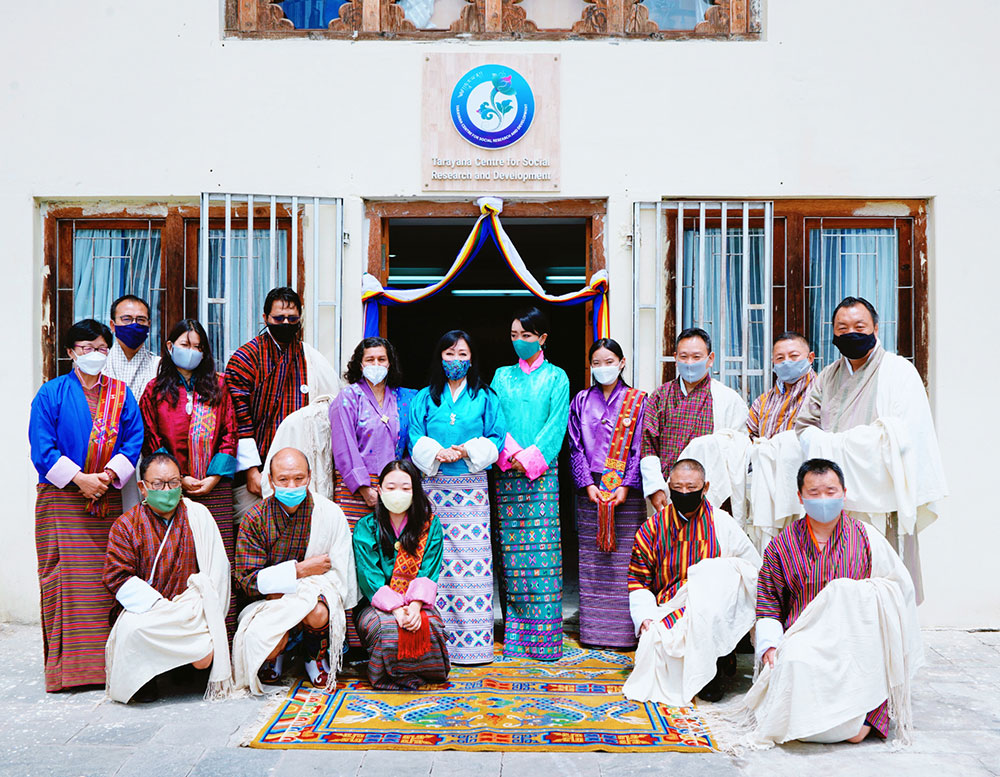Chhimi Dema
Tarayana Foundation yesterday launched a programme to document and research the impacts of climate change faced by Bhutanese communities and find adaption strategies in consultation with policy-makers to benefit the communities.
The programme, Bhutanese Knowledge for Indigenous Development (B-KIND), is undertaken by the Tarayana Centre for Social Research and Development, the research and think tank of the foundation, in collaboration with the College of Natural Resources and the College of Language and Culture Studies.
The programme received a grant of approximately USD one million from the Government of Canada through the International Development Research Centre (IDRC).
B-KIND’s programme coordinator, Ritu Verma (PhD), said that the programme is an action-oriented research that focuses on adaptation to climate change, sustainable organic agriculture, holistic food systems, gender equality and wellbeing.
She added that the B-KIND project is aiming to document the experiences or impacts of climate change that communities face while also trying to figure out ways to adapt to the changes.
“From the beginning of the B-KIND programme, we will interact with policy-makers and discuss as to how these [voices from the grassroots] can be carried forward at the national level,” she said, adding that critical research needs to be brought to life and influence policy and decision-makers.
According to the press release from the Tarayana Foundation, the programme aims to generate knowledge through scientific and citizen-research about locally appropriate organic agricultural food systems and implement action-oriented research on the use of best organic farming practices.
The programme would also strengthen the trans-disciplinary expertise and help make evidence-based policy for resilient organic farming, climate change agenda, Gross National Happiness, gender equality, and food and nutrition security.
Rita Verma said that the B-KIND programme is transdisciplinary with equal numbers of biophysical researchers, natural scientists measuring climate vulnerabilities, and socio-cultural scientists researching the human impacts and how climate change affects intangible aspects of culture.
“It is also transdisciplinary in a way that involves citizen research,” she said.
For example, the research involves local communities through visual ethnography whereby farmers would get smartphones to capture images and explain through visuals how climate change is impacting them.
Rita Verma said: “If you allow farmers to capture their own stories, it comes to life.”
The pictures would be part of a photo exhibition and photographic book.
The B-KIND programme will support eight Doctor of Philosophy (PhD) and two master’s degree scholarships.
According to the press release, four scholarships will be hosted at the PhD programme in Climate Studies at the College of Natural Resources and PhD scholarships are expected to be hosted at the new PhD programme in Anthropology being developed at the College of Language and Cultural Studies.
The programme will be implemented in three dzongkhags–Gasa, Punakha, and Wangdue.
“Field sites represent climate, biophysical, socio-cultural, gender, geographical, elevation, topographical, and context-specific variability across the highly diverse conditions of Bhutan,” the press release stated.
Edited by Jigme Wangchuk


